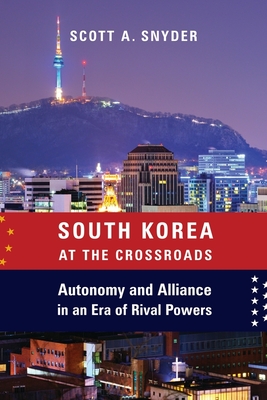Expedite your nonfiction book discovery process with Readara interviews, summaries and recommendations, Broaden your knowledge and gain insights from leading experts and scholars
In-depth, hour-long interviews with notable nonfiction authors, Gain new perspectives and ideas from the writer’s expertise and research, Valuable resource for readers and researchers
Optimize your book discovery process, Four-to eight-page summaries prepared by subject matter experts, Quickly review the book’s central messages and range of content
Books are handpicked covering a wide range of important categories and topics, Selected authors are subject experts, field professionals, or distinguished academics
Our editorial team includes books offering insights, unique views and researched-narratives in categories, Trade shows and book fairs, Book signings and in person author talks,Webinars and online events
Connect with editors and designers,Discover PR & marketing services providers, Source printers and related service providers

South Korea at the Crossroads: Autonomy and Alliance in an Era of Rival Powers
Political Science > International Relations - Diplomacy
- Columbia University Press
- Paperback
- 9780231185493
- 9 X 6.1 X 0.8 inches
- 1.1 pounds
- Political Science > International Relations - Diplomacy
- (Single Author) Asian American
- English
Readara.com
Book Description
Snyder begins with South Korea's effort in the 1960s to offset the risk of abandonment by the United States during the Vietnam War and the subsequent crisis in the alliance during the 1970s. A series of shifts in South Korean foreign relations followed: the Nordpolitik engagement with the Soviet Union and China at the end of the Cold War; Kim Dae Jung's Sunshine Policy, designed to bring North Korea into the international community; trustpolitik, which sought to foster diplomacy with North Korea and Japan; and changes in South Korea's relationship with the United States. Despite its rise as a leader in international financial, development, and climate-change forums, South Korea will likely still require the commitment of the United States to guarantee its security. Although China is a tempting option, Snyder argues that only the United States is both credible and capable in this role. South Korea remains vulnerable relative to other regional powers in northeast Asia despite its rising profile as a middle power, and it must balance the contradiction of desirable autonomy and necessary alliance.
Author Bio
Scott A. Snyder is senior fellow for Korea studies and director of the program on U.S.-Korea policy at the Council on Foreign Relations (CFR). His program examines South Korea’s efforts to contribute on the international stage; its potential influence and contributions as a middle power in East Asia; and the peninsular, regional, and global implications of North Korean instability.
Mr. Snyder is the author of South Korea at the Crossroads: Autonomy and Alliance in an Era of Rival Powers (January 2018) and coauthor of The Japan-South Korea Identity Clash: East Asian Security and the United States (May 2015) with Brad Glosserman. He is also the coeditor of North Korea in Transition: Politics, Economy, and Society (October 2012), and the editor of Global Korea: South Korea’s Contributions to International Security (October 2012) and The U.S.-South Korea Alliance: Meeting New Security Challenges (March 2012).
Mr. Snyder served as the project director for CFR’s Independent Task Force on policy toward the Korean Peninsula. He currently writes for the blog Asia Unbound.
Mr. Snyder has authored numerous book chapters on aspects of Korean politics and foreign policy and Asian regionalism. He is the author of China’s Rise and the Two Koreas: Politics, Economics, Security (January 2009), Paved With Good Intentions: The NGO Experience in North Korea (coeditor, August 2003), and Negotiating on the Edge: North Korean Negotiating Behavior (November 1999). Mr. Snyder has provided advice to nongovernmental and humanitarian organizations active in North Korea and serves on the advisory council of the National Committee on North Korea and Global Resource Services.
Prior to joining CFR, Mr. Snyder was a senior associate in the international relations program of the Asia Foundation, where he founded and directed the Center for U.S.-Korea Policy and served as the Asia Foundation’s representative in Korea (2000–2004). He was also a senior associate at Pacific Forum Center for Strategic and International Studies.
Mr. Snyder has worked as an Asia specialist in the research and studies program of the U.S. Institute of Peace and as acting director of Asia Society’s contemporary affairs program. He was a Pantech visiting fellow at Stanford University’s Shorenstein Asia-Pacific Research Center during 2005–2006, and received an Abe fellowship, administered by the Social Sciences Research Council, in 1998–1999.
Mr. Snyder received a BA from Rice University and an MA from the regional studies East Asia program at Harvard University. He was a Thomas G. Watson fellow at Yonsei University in South Korea.
Affiliations:
Japan Bank of International Cooperation, consultant
National Committee on North Korea, co-chair
“Washington Talk,” VOA Korean Service, guest analyst
Source: Council on Foreign Relations
Videos
No Videos
Community reviews
No Community reviews

